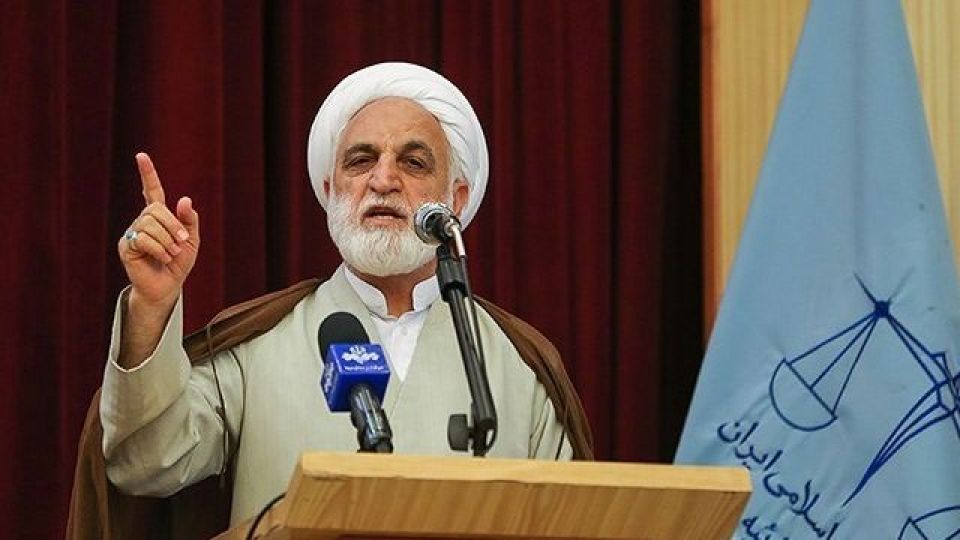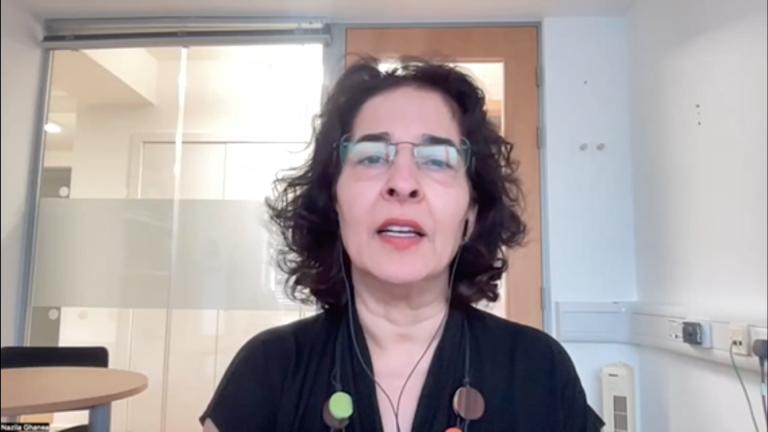
The appointment of another infamous hardliner as the new head of Iran’s judiciary, replacing president-elect Ebrahim Raisi, is being seen as another step towards an even more repressive Islamic Republic.
Gholam Hossein Mohseni Ejei, who was Raisi’s deputy as Vice Chief Justice, was appointed on 1 July by Supreme Leader Ali Khamenei, who hailed his new Chief Justice’s “brilliant record in the judiciary”.
A stalwart of the regime, Ejei has held a number of other senior positions since the founding of the Islamic Republic in 1979 and is infamous for once biting a journalist during a dispute over an article.
Dr Mahmood Amiry-Moghaddam, director of Norway-based NGO Iran Human Rights, told Article18 that both Ejei’s appointment as head of the judiciary and Raisi’s de facto appointment as president showed that for Khamenei, “only the survival of the regime – and repression – is important”.
“The message of these appointments is that the regime will not tolerate anything other than 100% loyalty,” he said, “and anything that does not fall within the framework of this 100% loyalty will be suppressed, such as civil rights activists and religious minorities.”
“They have been elected to these posts because the regime sees no other option for its survival [than repression],” he added, “because the Iranian people do not accept this regime and have no hope of positive change within the State.”
Ejei has been part of the fabric of the regime since the early days of the revolution. The 64-year-old studied at the Haqqani Shia seminary in the conservative city of Qom, before going on to hold a host of senior regime posts, including Attorney-General, Minister of Intelligence, Prosecutor of Iran’s “Special Clerical Court”, and then Vice Chief Justice in August 2014.
Iranian human rights lawyer Hossein Ahmadiniaz told Article18 Ejei’s appointment will “lead to a further regression of Iran’s judiciary”.
“He is the best choice for the regime and the worst possible choice for the people, for civil society and the human rights community, and for the Iranian judiciary as an institution,” he said.
“Ejei is a symbol of judicial torture, violence, injustice, lawlessness, legal ignorance, malice and subservience to the regime. For 42 years, he has served in all the lower and upper echelons of the regime’s security and judicial systems, and has spared no effort to ensure the regime’s survival, sacrificing all laws, justice, fairness, rights, dignity, and the integrity of the judiciary on the way.
“From torture, to the overseeing of torture; from the issuance of a religious fatwa on death for apostasy, to the issuance of compulsory confessions and torture of political and security defendants in the judiciary and Ministry of Intelligence; or biting Isa Saharkhiz at the official meeting of the Press Supervisory Board – all and sundry are part of his black record.
“Ejei will bring more suffering to the Iranian people from the judiciary and security forces. He is an undisputed subordinate of the Supreme Leader, and will give him more control of the judiciary than ever before.”
Like Raisi, Ejei has been accused of involvement in the massacre of thousands of dissidents in 1988, while church leaders including Haik Hovsepian, Tateos Michaelian and Mohammad Bagher Yusefi (“Ravanbakhsh”) are among those who were “disappeared” during the subsequent decade of extra-judicial assassinations that later became known as the “chain murders”.
Both Ejei and Raisi were part of a three-person panel that rejected a report from reformist cleric Mehdi Karroubi, claiming Green Movement protesters had endured sexual harassment and rape following the disputed results of the 2009 presidential election.
Ejei was among 32 Iranian officials sanctioned by the European Union in 2011 for his role in the 2009 violence against protesters, while both Ejei and Raisi have been sanctioned by the United States for alleged rights violations.
As Khamenei says, Ejei has quite the record.



0 Comments
Trackbacks/Pingbacks